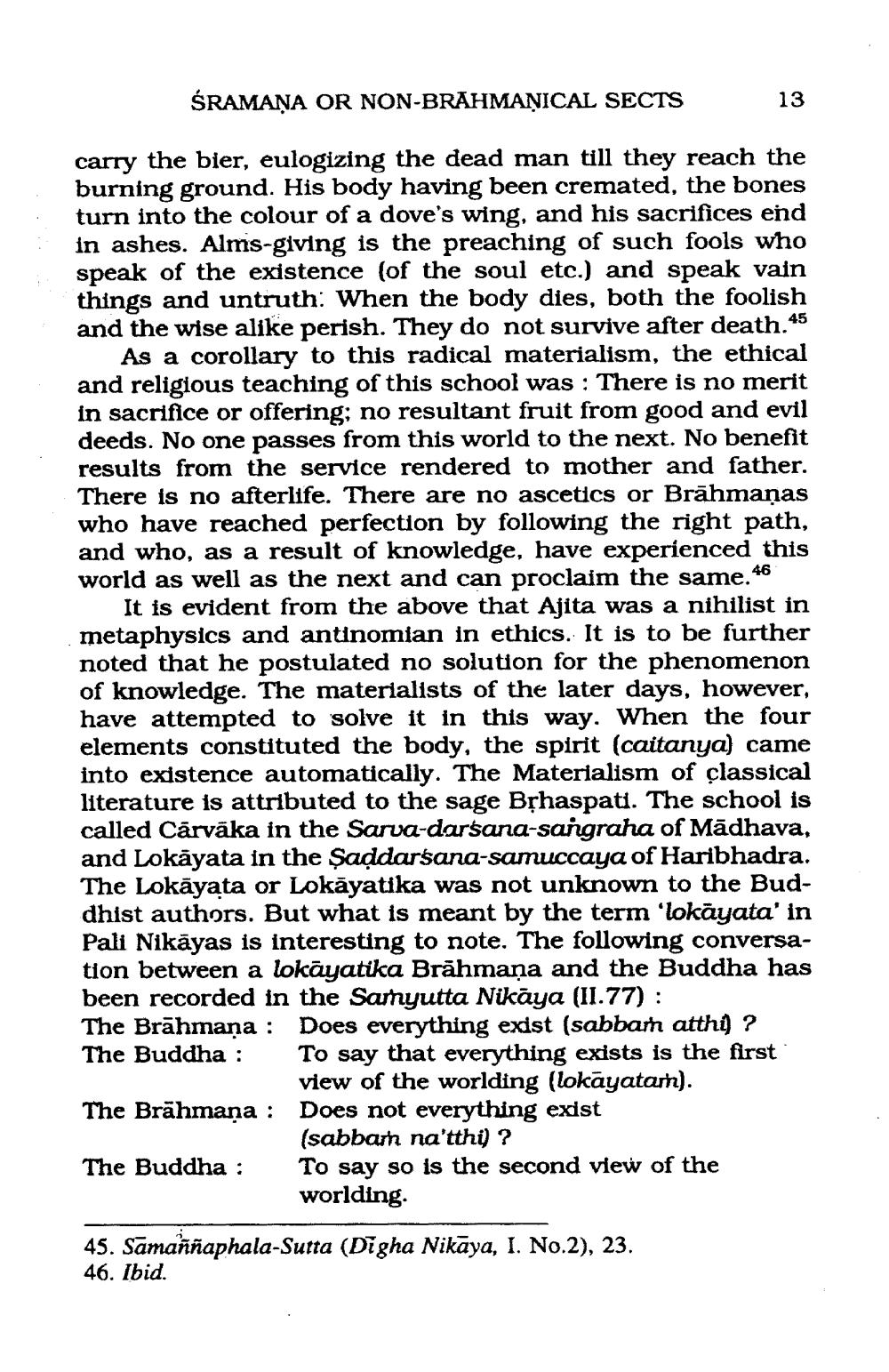________________
ŚRAMAŅA OR NON-BRAHMAŅICAL SECTS
13
carry the bier, eulogizing the dead man till they reach the burning ground. His body having been cremated, the bones turn into the colour of a dove's wing, and his sacrifices end in ashes. Alms-giving is the preaching of such fools who speak of the existence (of the soul etc.) and speak vain things and untruth: When the body dies, both the foolish and the wise alike perish. They do not survive after death.45
As a corollary to this radical materialism, the ethical and religious teaching of this school was : There is no merit in sacrifice or offering; no resultant fruit from good and evil deeds. No one passes from this world to the next. No benefit results from the service rendered to mother and father. There is no afterlife. There are no ascetics or Brāhmaṇas who have reached perfection by following the right path, and who, as a result of knowledge, have experienced this world as well as the next and can proclaim the same. 46
It is evident from the above that Ajita was a nihilist in metaphysics and antinomian in ethics. It is to be further noted that he postulated no solution for the phenomenon of knowledge. The materialists of the later days, however, have attempted to solve it in this way. When the four elements constituted the body, the spirit (caitanya) came into existence automatically. The Materialism of classical literature is attributed to the sage Bșhaspati. The school is called Carvāka in the Sarva-darsana-sangraha of Mādhava, and Lokāyata in the Şaņdarsana-samuccaya of Haribhadra. The Lokāyata or Lokāyatika was not unknown to the Buddhist authors. But what is meant by the term 'lokayata' in Pali Nikāyas is interesting to note. The following conversation between a lokāyatika Brāhmaṇa and the Buddha has been recorded in the Sanyutta Nikāya (II.77): The Brāhmaṇa : Does everything exdst (sabbam atthy ? The Buddha : To say that everything exists is the first
view of the worlding (lokāyatam). The Brāhmana : Does not everything exist
(sabban na'tthi) ? The Buddha : To say so is the second view of the
worlding. 45. Samaññaphala-Sutta (Digha Nikāya, I. No.2), 23. 46. Ibid.




